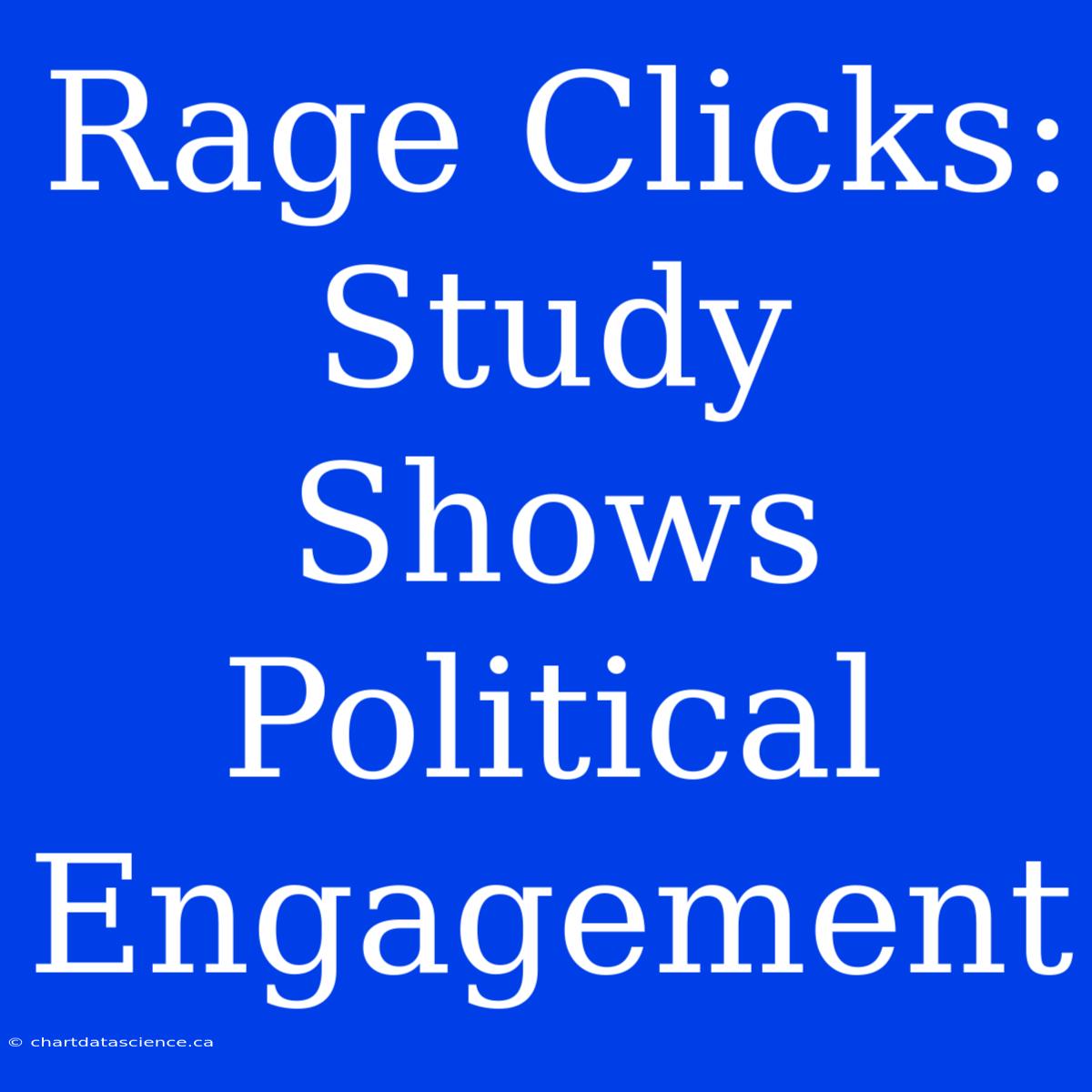Rage Clicks: Study Shows Political Engagement, But at What Cost?
We've all been there. You scroll through your social media feed, and BAM! A headline pops up that just makes your blood boil. You click it, ready to engage in a fiery debate, fueled by righteous anger. You're not alone. This "rage clicking" is a common phenomenon, and a recent study shows it's not just about venting – it's a sign of political engagement.
But is this engagement a good thing?
Rage Clicks: Fueling the Fire or Fanning the Flames?
The study, published in the journal Political Communication, found that people who are more likely to engage with politically charged content online are also more likely to be politically active offline. They're more likely to vote, donate to campaigns, and even protest.
This is because "rage clicking" often stems from a strong sense of political identity. People who click on these headlines feel a deep connection to the issues being discussed and are motivated to take action. The study suggests that even seemingly trivial actions like "rage clicking" can have a real impact on political behavior.
The Dark Side of "Rage Clicks":
However, this isn't all sunshine and roses. "Rage clicking" can also have negative consequences. It can contribute to the spread of misinformation and echo chamber effects, where people are only exposed to information that confirms their existing beliefs.
It also fuels online toxicity. When we're angry, we're more likely to be rude, aggressive, and even abusive. This can lead to a vicious cycle of negativity that damages online communities and discourages constructive dialogue.
The Balance: Engaging Without the Rage?
So, how do we navigate this complex landscape? How can we engage in political issues online without letting rage get the better of us?
- Think before you click: Take a moment to breathe and consider the source of the information before you click. Is it a reliable source, or is it designed to provoke?
- Focus on facts: Look for evidence-based information, and be critical of claims that sound too good to be true.
- Engage constructively: If you do choose to engage, be respectful of different viewpoints. Focus on having a civil discussion, not just shouting your opinions.
"Rage clicking" can be a powerful tool for political engagement. However, it's crucial to be aware of its potential downsides and engage responsibly. By focusing on facts, practicing empathy, and keeping our emotions in check, we can use the internet to promote positive change, instead of contributing to online toxicity.

